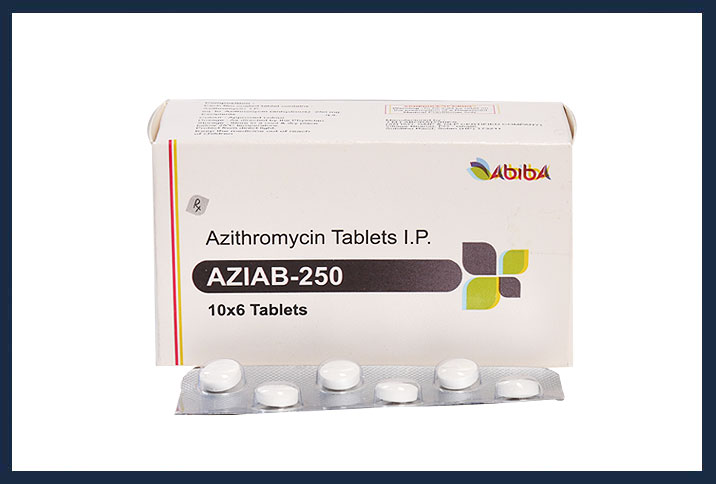Description
Azithromycin is widely used in the treatment of a range of bacterial infections. Several bacterial infections such as bronchitis; pneumonia; sexually transmitted diseases (STD), and infections of the ears, lungs, sinuses, skin, throat, and reproductive organs are treated with Azithromycin. It belongs to a class of medication called macrolide antibiotics that target the growth of bacterial infection. The medicine is not effective against colds, flu, or other viral infections. Do not skip the doses and complete the full course of medicine.
Take the tablets as per the prescribed dosage and duration by a doctor. The tablet should be taken at evenly spaced time intervals as prescribed by your doctor. Do not skip any doses and finish the full course of treatment even if you feel better. Some users may experience side effects such as vomiting, nausea, stomach pain, and diarrhea. Contact your doctor if your side effects worsen or persist. Inform your doctor if you are allergic to Azithromycin or a similar medicine.
Uses of Azithromycin Tablet
Azithromycin is an antibiotic medicine that can be used to treat many different infections caused by bacteria. The medicine works by stopping the growth of bacteria responsible for causing infection. Azithromycin can fight a wide range of bacteria, including many in the Streptococcus family. The medication is majorly prescribed to treat a range of bacterial infections such as:
- Bronchitis
- Pneumonia
- sexually transmitted diseases (STDs)
- infections of the ears, lungs, sinuses, skin, throat, and reproductive organs
Side Effects of Azithromycin Tablets
Usually, there are mild to temporary side effects of Azithromycin Tablets that do not last for a long time. The side effects usually depend on the physiological condition and response to the medicine. If your side effects persist or get severe with time, immediately contact your doctor. The range of side effects noticed on using Azithromycin Tablets are mentioned following:
- nausea
- diarrhea
- vomiting
- stomach pain
- headache
- dizziness
- fainting
- rash with or without a fever
- blisters or peeling
Drug Interactions
The drugs can interact with other drugs and cause negative health effects. Drugs also have a tendency to interact with a few food items and certain health conditions. Hence, do not take Azithromycin tablets with the following mentioned drugs:
- warfarin (Jantoven)
- colchicine (Colcrys, Gloperba, Mitigare)
- cyclosporine (Gengraf, Neoral, Sandimmune); digoxin (Lanoxin)
- dihydroergotamine (D.H.E. 45, Migranal, Trudhesa)
- ergotamine (Ergomar, in Migergot)
- amiodarone (Nexterone, Pacerone)
- dofetilide (Tikosyn)
- Procainamide
- quinidine, and sotalol (Betapace, Sorine, Sotylize)
- nelfinavir (Viracept)
- phenytoin (Dilantin, Phenytek)
Precautions and Warnings
- Do not take the Azithromycin tablets, if you are pregnant or breastfeeding your newborn.
- Avoid consuming alcohol with the medicine as it may increase the dizziness caused by Azithromycin tablets.
- Store the tablets in a cool and dry place away from direct sunlight.
- Keep the medicine out of reach of children and pets. Carefully, dispose of expired and discarded medicines.
- Do not abruptly stop taking the medicine and complete the full course of the medicine.
- Azithromycin tablets should be used with caution in patients with liver disease or severe kidney disease.






